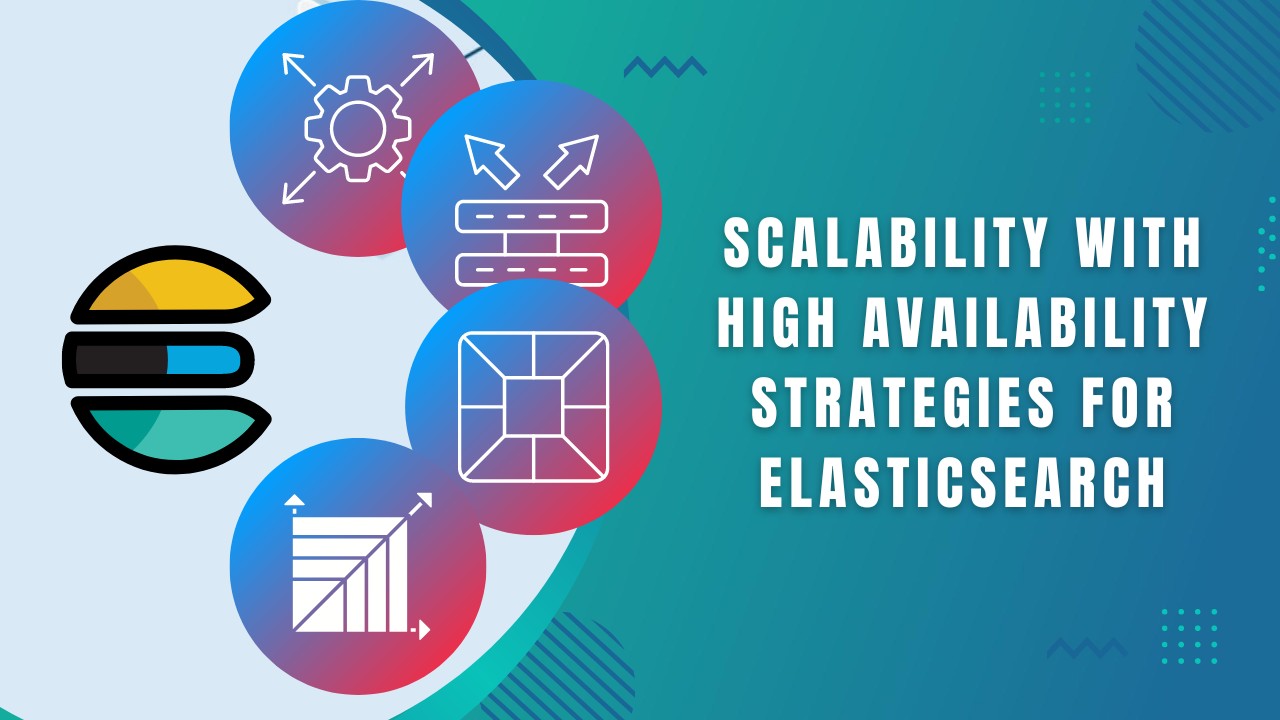In today’s data-driven landscape, Elasticsearch has emerged as a powerful and versatile search and analytics engine. However, as your data grows and user demands increase, ensuring both scalability and high availability becomes crucial.
This article delves into the strategies that can help you achieve these dual goals for Elasticsearch, ensuring optimal performance and reliability for your applications.
Scalability with High Availability Strategies for Elasticsearch
Elasticsearch is renowned for its ability to handle large volumes of data and perform lightning-fast searches. To maximize its potential, combining scalability and high availability is essential.
Here, we’ll explore strategies that empower you to achieve this harmony effectively.
1. Planning for Growth: Scalability Starts Here
To ensure your Elasticsearch cluster can scale with your data needs, meticulous planning is key. Begin with estimating your data growth using tools like the Logstash Forwarder. This aids in determining the hardware resources and configurations required to accommodate future data.
2. Horizontal Scaling: Adding Nodes for Enhanced Performance
Horizontal scaling involves adding more nodes to your Elasticsearch cluster. This approach distributes the data and query load, enhancing both performance and fault tolerance. Utilize tools like Elasticsearch Curator for seamless management of node addition.
3. Data Sharding: Distributing Data for Efficiency
Data sharding involves breaking your index into smaller shards that can be distributed across nodes. This strategy ensures balanced data distribution, optimized search performance, and better resource utilization.
4. Load Balancing: Optimizing Resource Usage
Implement load balancing techniques to distribute queries evenly across nodes. Tools like NGINX can be used to create a load balancer that directs incoming requests to different Elasticsearch nodes, preventing overloading.
5. Replication for High Availability
Replication involves creating copies of your data on multiple nodes. This ensures data redundancy, fault tolerance, and high availability. Elasticsearch’s built-in replication mechanisms simplify this process.
6. Indexing Strategies: Enhancing Write Performance
Efficient indexing is vital for write-intensive workloads. Consider strategies like bulk indexing and optimizing mapping to enhance indexing speed and overall cluster performance.
7. Caching Mechanisms: Accelerating Query Performance
Utilize caching mechanisms to store frequently queried data. Elasticsearch supports various caching strategies, such as field data cache and filter cache, to accelerate query execution.
8. Optimizing Queries: Ensuring Speed and Accuracy
Well-optimized queries are fundamental for Elasticsearch’s performance. Leverage query profiling tools to identify bottlenecks and optimize queries for both speed and accuracy.
9. Monitoring and Alerts: Proactive Maintenance
Implement comprehensive monitoring to keep a close eye on cluster health, performance, and resource utilization. Tools like the Elasticsearch Monitoring Plugin provide real-time insights. Set up alerts to address issues promptly.
10. Disaster Recovery Planning: Being Prepared
No system is immune to failures. Craft a robust disaster recovery plan that includes regular backups, off-site storage, and quick data restoration strategies. Services like Amazon S3 can assist in secure data backup.
11. Using LSI Keywords: Expanding Your Reach
Incorporating Latent Semantic Indexing (LSI) keywords can enhance your content’s relevance and reach. LSI keywords like “Elasticsearch scalability strategies” and “high availability in Elasticsearch” improve your article’s search visibility.
12. Scaling Considerations for Large Datasets
When dealing with substantial datasets, specific considerations come into play. Employ techniques like index lifecycle management to manage aging data efficiently and maintain cluster performance.
13. Cloud-Based Solutions: Leveraging Elastic Cloud
Cloud-based solutions, like Elastic Cloud, provide managed Elasticsearch instances. This relieves you of infrastructure management, allowing you to focus on optimizing cluster performance and availability.
14. Node Failure Mitigation: Staying Resilient
Node failures are inevitable. Employ strategies like shard allocation filtering and quorum-based decision-making to mitigate the impact of node failures on your cluster.
15. Testing and Benchmarking: Ensuring Readiness
Regularly test your cluster’s performance and resilience through benchmarks and load tests. This practice uncovers potential bottlenecks and aids in fine-tuning your setup.
Need help on maintaining Azure Security Center Secure Score of Clients?
Our experts can help you on all kinds of works on Azure Security Center.
Conclusion
In the dynamic world of data-driven applications, Elasticsearch’s scalability and high availability strategies are paramount. By meticulously planning for growth, implementing data distribution techniques, optimizing queries, and preparing for failures, you can ensure that your Elasticsearch cluster performs optimally and reliably.
Whether you’re dealing with small-scale applications or large datasets, these strategies provide a solid foundation for a successful Elasticsearch deployment.








